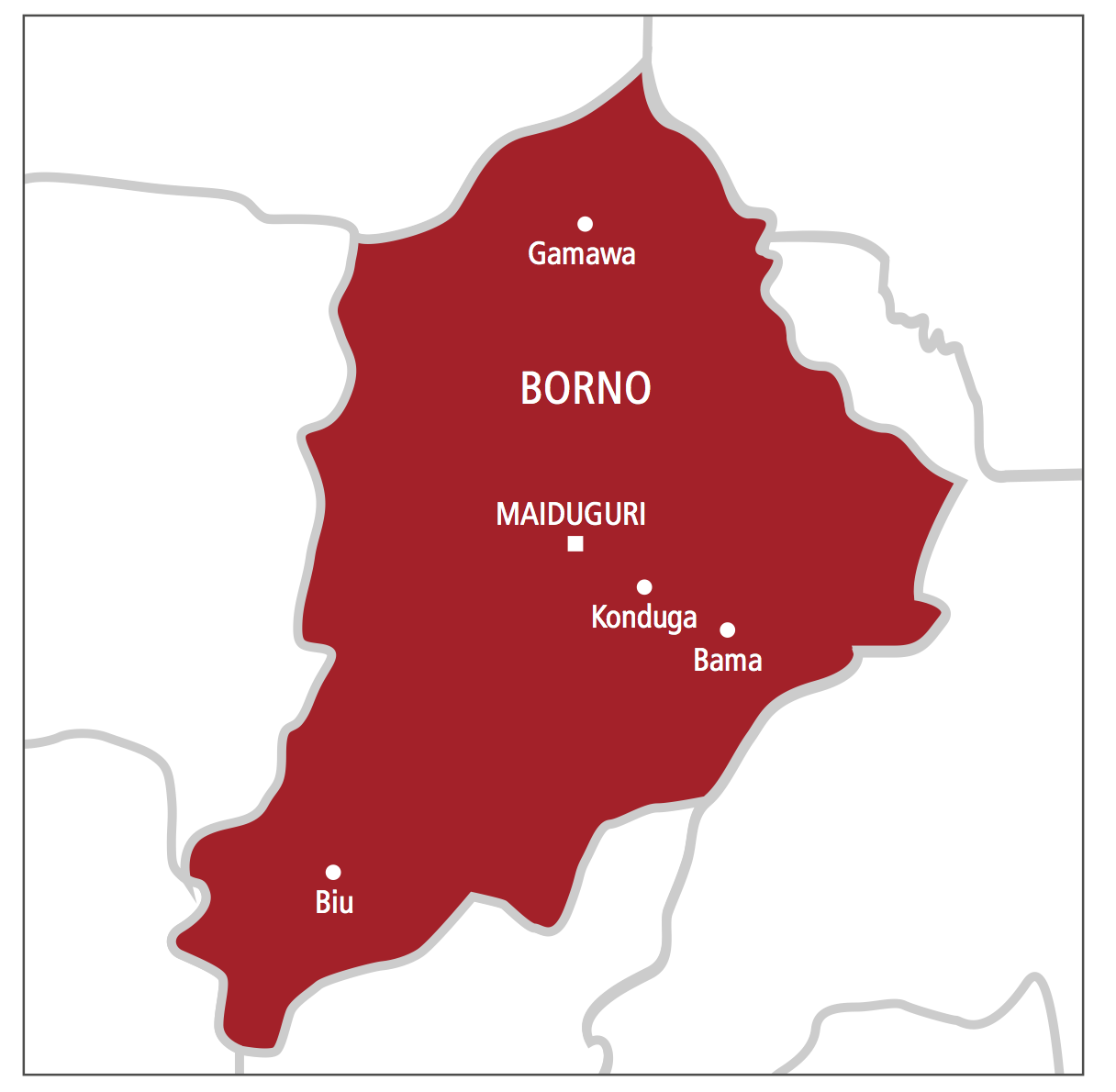NDE trains 50 Borno youths in agric enterprises
The National Directorate of Employment (NDE) in Borno State under its Rural Employment Promotion, has trained 50 youths agriculture enterprises in the state. Speaking during a one-week training workshop in Maiduguri, the Director General of NDE Abubakar Nuhu Fikpo, said the objective of training was to identify value chain addition of agricultural sector and prepares […]

Map of Borno State
The National Directorate of Employment (NDE) in Borno State under its Rural Employment Promotion, has trained 50 youths agriculture enterprises in the state.
Speaking during a one-week training workshop in Maiduguri, the Director General of NDE Abubakar Nuhu Fikpo, said the objective of training was to identify value chain addition of agricultural sector and prepares beneficiaries to key in aimed at empowering the beneficiaries of the scheme to establish, grow and expand agric enterprises of their choice on a sustainable basis.
Dozens killed in ISWAP, B/Haram rival clash in Borno
LAWMA to shut Ladipo, Oyingbo markets
Nuhu, who was represented by the State Coordinator of NDE, Zakari Kashim, explained that the scheme consists of various agricultural interventions that provide job opportunities to youths and also to provide adequate food for the increasing population.
The agency also commenced the training of 49 youths on small-scale goat production using the revolving model of empowerment.
Kashim said goat production is an economically viable business venture in Nigeria because its value chain for commercial production has great employment potential, adding that it enjoys a very wide market share with all the production in high demand.
He noted that the engagement of unemployed youths therefore goat production business along its value chain plays an important role in the socioeconomic environment.
Kashim added that the great inherent in goat production business includes meat production, milk, hide, skin and manure.
“These can be used to earn income, increase the livelihood of the farmers, create employment, reduce rural-urban migration and reduce poverty,” noted Kashim.
